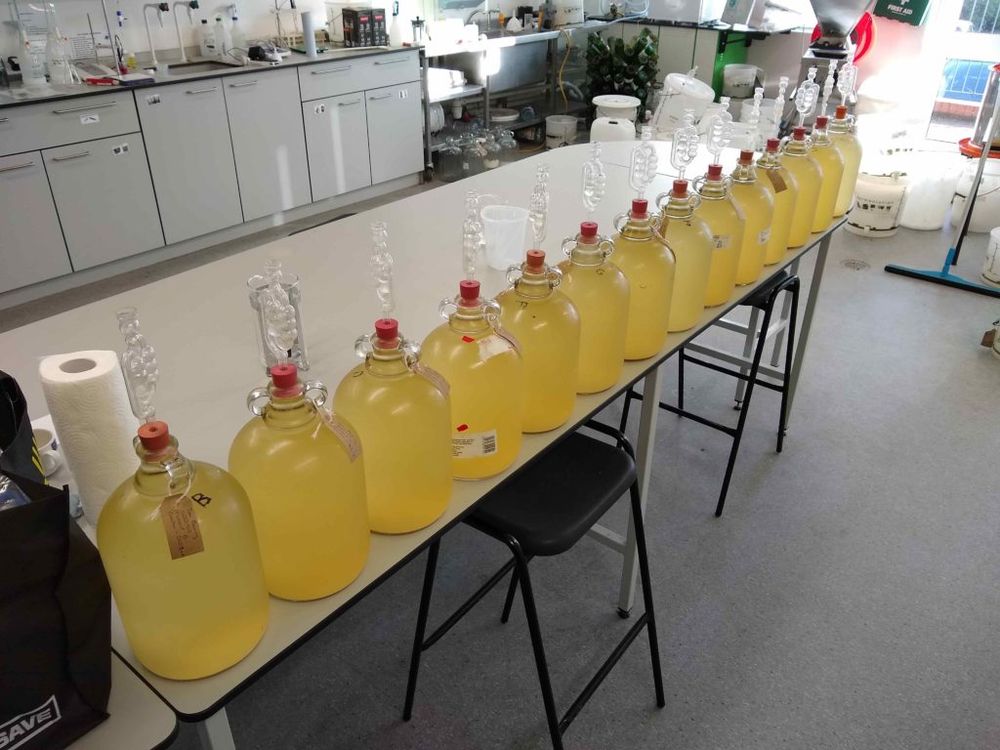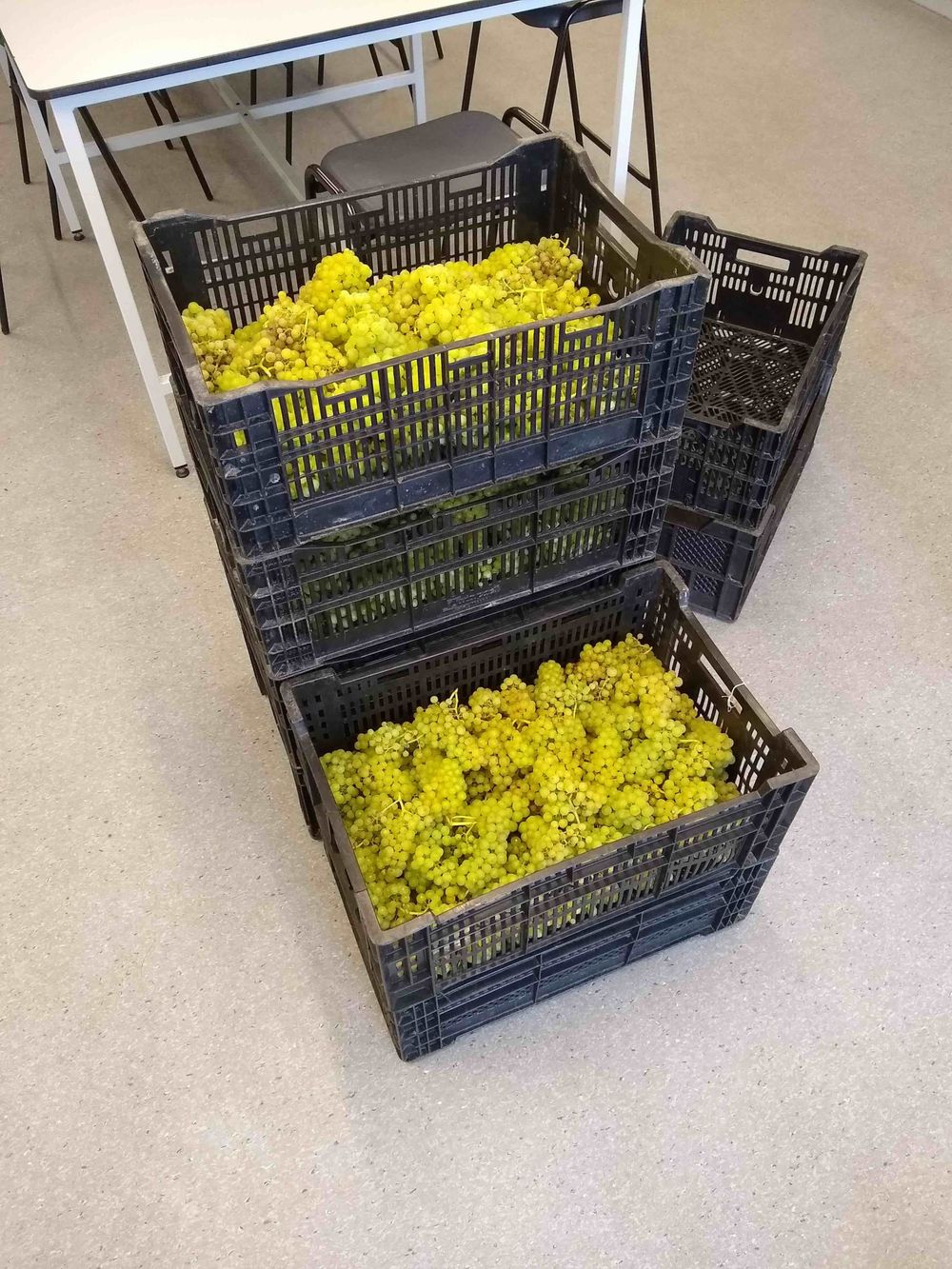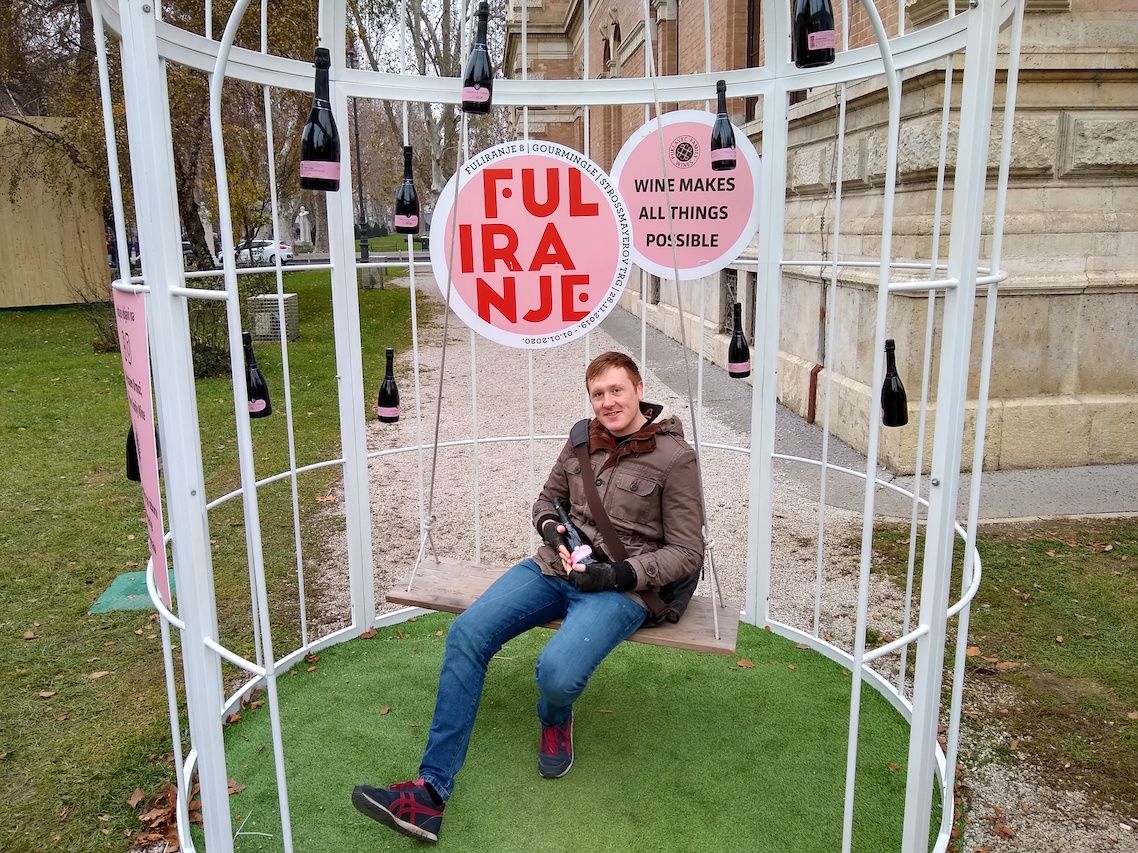“I’ve encountered a lot of people that have a very idealised impression of what winemaking involves, but it’s hard, dirty work! However, it’s also creative, and you’ve got to love experimentation, accept change and know how to deal with mistakes.”
Tell us a bit about yourself
I graduated with a BSc in Environmental Science in 2008 and spent most of the following 10 years managing biochemical and environmental chemistry laboratories in universities. After getting fed up of university politics, and hitting 30, I decided to plump for a change of career and started my MSc in 2017. Since then I’ve left the old career behind and whilst completing the MSc have spent time winter pruning in Oxfordshire, working harvests in Sussex and New Zealand, and filling the gaps selling wine and running tasting events in Majestic stores.
How and why did you get interested in wine industry?
I lived in Adelaide, Australia for a year in 2014 and discovered the glamorous side of the wine industry whilst visiting cellar doors all over South Australia and Margaret River, quickly deciding that it was an industry I’d enjoy working in. But it was a few years later when I was properly researching what was involved with winemaking when I realised the complexity of the chemistry, geography and microbiology it entailed and that was when I was hooked.

Two harvests of Bacchus were picked two weeks apart – one ‘early’ one ‘ripe’ for thiol analysis
How and why did you want to do a course at Plumpton College?
When I visited Plumpton the students were all keen and enthusiastic about the college. It also meant a lot to learn from, and study with, people that were passionate about the subject and keen to work together and help each other get the most from the experience.
How did you hear about it?
I literally googled “wine courses in the UK”. I popped along to the next information morning they were hosting, had a tour and a chat, and the rest is history.
What course are you doing and why?
I’m studying the MSc in Viticulture & Oenology. I’ve always wanted to study an MSc because I enjoy the challenge, but one had never come along that I’d felt certain about. The beauty of studying wine for me is that you can specialise in a topic that is so broad. Wine involves chemistry, biology, microbiology, history, geography, politics and business and there’s always something new to discover.
What’s the topic of your thesis/project?
I’ve investigated whether the addition of an enzyme to juice pre-inoculation can increase the volatile thiol aromatic profile of early harvested Bacchus. It was envisaged as a potential assist for winemakers in really poor years, or as a means of producing wines with lower ABV.
Why are you interested in doing that?
I knew I wanted to focus on winemaking, and aroma chemistry is a fascinating, and complex, topic. The potential of Bacchus for the UK is well known as well, so it seemed like a perfect option.
What has the research involved and how have you gone about doing the project?
I performed two harvests, two weeks apart, to have an ‘early’ and ‘ripe’ harvest. I produced 8 wines from each harvest, using different yeast strains and varying additions of the enzyme. Once bottled they were all analysed chemically for total thiol content, and I conducted sensory analysis sessions with students and staff from Plumpton. A lot of statistical analysis, and late nights in front of the computer later and I had a thesis to hand in!
What challenges have you had pulling it together?
Nothing really went quite to plan, but then I guess that’s to be expected. A major initial hurdle was getting the grapes ripe enough for my ‘ripe’ harvest before disease set in, as a lot of you are aware, 2019 wasn’t the greatest of vintages… Another issue was that the enzyme didn’t really achieve what I hoped it would, but I still found plenty to write about.
What do you hope your research will achieve…?
Predominantly more attention for Bacchus and UK still wine. There is so much potential for the variety.

A major initial hurdle was getting the grapes ripe enough for the ‘ripe’ harvest before disease set in
How will you apply what you’ve learnt to your future career?
It was very interesting to see the manner in which wine profiles changed between the two harvests when conducting sensory analysis. It opened up unexpected areas of sensory science research for me to investigate for my thesis, and gave me further experience of how you can manipulate wine profiles you’re intending to achieve.
What’s the next step for you at Plumpton?
I’m actually on my final steps, I’ve submitted my thesis and I’ve got my Viva to complete. I’m looking forward to getting out into the industry now!
What would you say to people looking to do a course at Plumpton…what do you need to understand before coming to make the most of it?
My main bit of advice would be to know what it is you’d like to achieve and have an idea of where it is you’d like to end up. Viticulture is agriculture, and a winery is essentially a factory. I’ve encountered a lot of people that have a very idealised impression of what winemaking involves, but it’s hard, dirty work! However, it’s also creative, and you’ve got to love experimentation, accept change and know how to deal with mistakes.
After Plumpton what are you hoping to do…career in wine or not and what sort of job?
I’d like to continue pursuing the winemaking route. I’m not really sure where yet, but there’s still so much to learn so I’m ready to get out there and start building on the experience I’ve already got.
Which countries/ regions around the world have you visited, most liked and why?
Obviously Australia, and now New Zealand too after spending a good chunk of 2019 exploring the country and some of its wine regions. But one of my favourite trips was to Italy and having a tour around a family vineyard in the Cinque Terre. You stepped off one of the paths crowded with tourists and you were immediately in a surprisingly quiet, terraced, pergola-trellised vineyard overlooking the Italian riviera. Fortunately it was just me and my partner on the tour so I could ask as much as I wanted about the native varieties, and how much winemaking has changed there over the years. And the wine was incredible.
Which countries/ regions do you most want to go to and why?
Next on the list is going to see some Portuguese regions. I love trying all the different varieties and styles of wine they produce, and a trip along the Douro and around Porto is a must. I’m also convinced we’ll be seeing a lot more of native varieties from warmer climates being planted and experimented with, particularly with climate change. So it’s good to get to know what might be in the future of the industry.
Any wine figures you look up to/ inspire you and why?
Coming from an environmental background I’m always keen to investigate ways that the industry can reduce its impact upon the environment. Something that has always intrigued me is carbon capture from fermentation as it could have an incredibly positive impact. As such, I’m quite inspired with the work Bodega Torres has been doing in Spain towards this end and encouraging the wine industry to address its impact.
Your favourite kinds of wine and why?
Anything intense and powerful like a Gewürztraminer or Californian Cabernet, or a bit different, such as a single varietal Touriga Nacional or a Grüner Veltliner fermented in a Puncheon. I definitely have my favourites but I’m always keen to try something new.
What are you eating with it and where?
Eating out is a very rare event at the moment, it’s been an expensive process completing the thesis and part-time retail wages don’t really allow it. But a good curry with the Gewürztraminer or some cheese and crackers with the Cabernet goes down well.
































